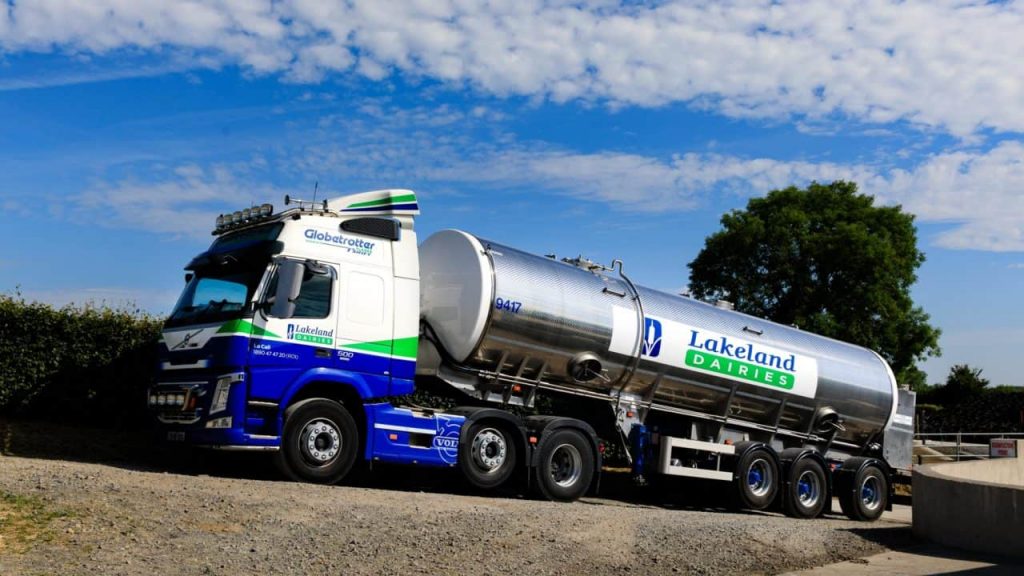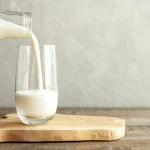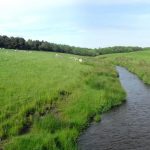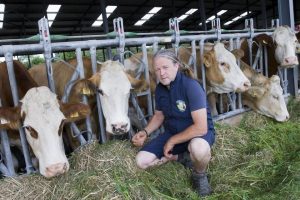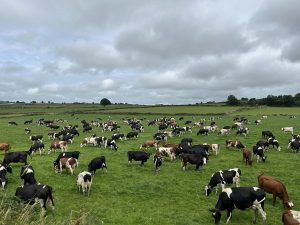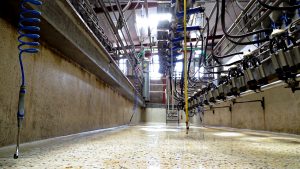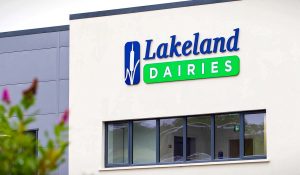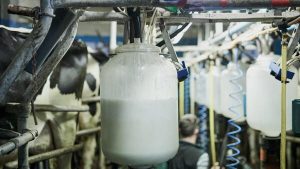
Over 90% of milk supplied to Lakeland Dairies has signed up for the cooperative’s Sustainability Incentive Payment, ‘Farming for a Better Future’.
Farmers who have signed up to the initiative started receiving a 0.5c/L or 0.5p/L payment from January according to the processor.
Nearly all of the cross-border co-op’s 3,200 farm family suppliers have signed up for the three-year initiative from 2024 to 2026, which requires them to carry out sustainability actions in return for the new payment.
Lakeland sustainability payment
In order to qualify for the payment, farmers in Northern Ireland (NI) and the Republic of Ireland (ROI) had to carry out a specific number of measures from a list provided to them.
The top five most popular measures chosen by NI and ROI farmers are: the use of protected urea; using sexed semen artificial insemination (AI); calving heifers between 22 and 26 months; milk recording; and developing a water quality plan.
Eamon Duignan, member relations manager with Lakeland Dairies said: “We are delighted to see such a high uptake among farmers for the Sustainability Incentive Payment.
“Well over 90% of all milk supplied to the co-op is now qualifying for the 0.5c/L or 0.5p/L payment.
“We will continue to work with those who have not yet signed up. The high numbers who have signed up indicates that the initiative is as farmer friendly as possible with the aim of supporting our farmers as they continue to make sustainable decisions on their farms.”
Niall McLoughlin , farm sustainability lead with Lakeland Dairies added: “The Sustainability Incentive Payment has been designed to support suppliers in reducing the carbon footprint of their dairy enterprise while delivering benefits for water quality, biodiversity, soil health and animal welfare.
“In particular, seeing farmers signing up to measures such as protected urea and developing a water quality / nutrient management plan shows just how aware they are of the importance of protecting and enhancing the quality of our watercourses.
“We will continue to work with them on this journey and I encourage any supplier to contact us if they wish to have a water quality plan developed for their farm.”
